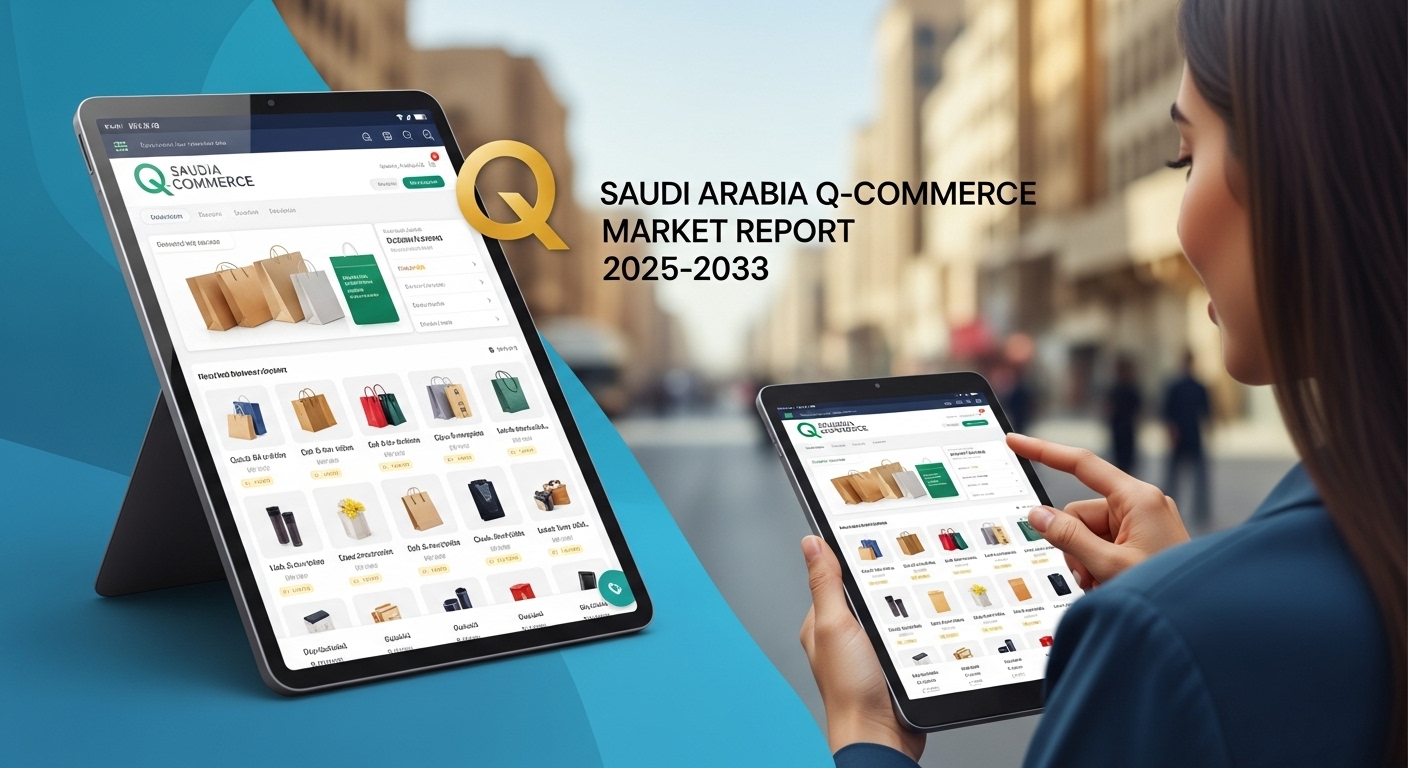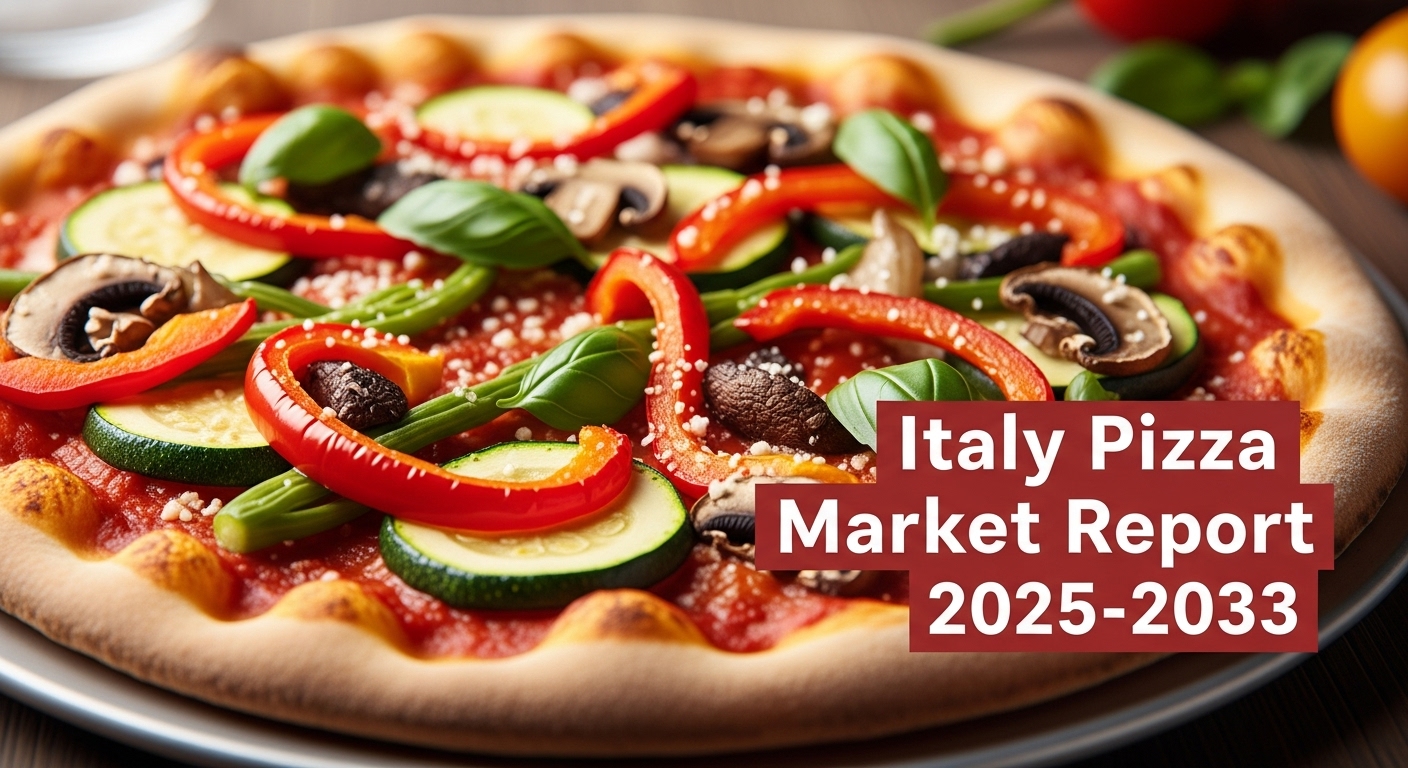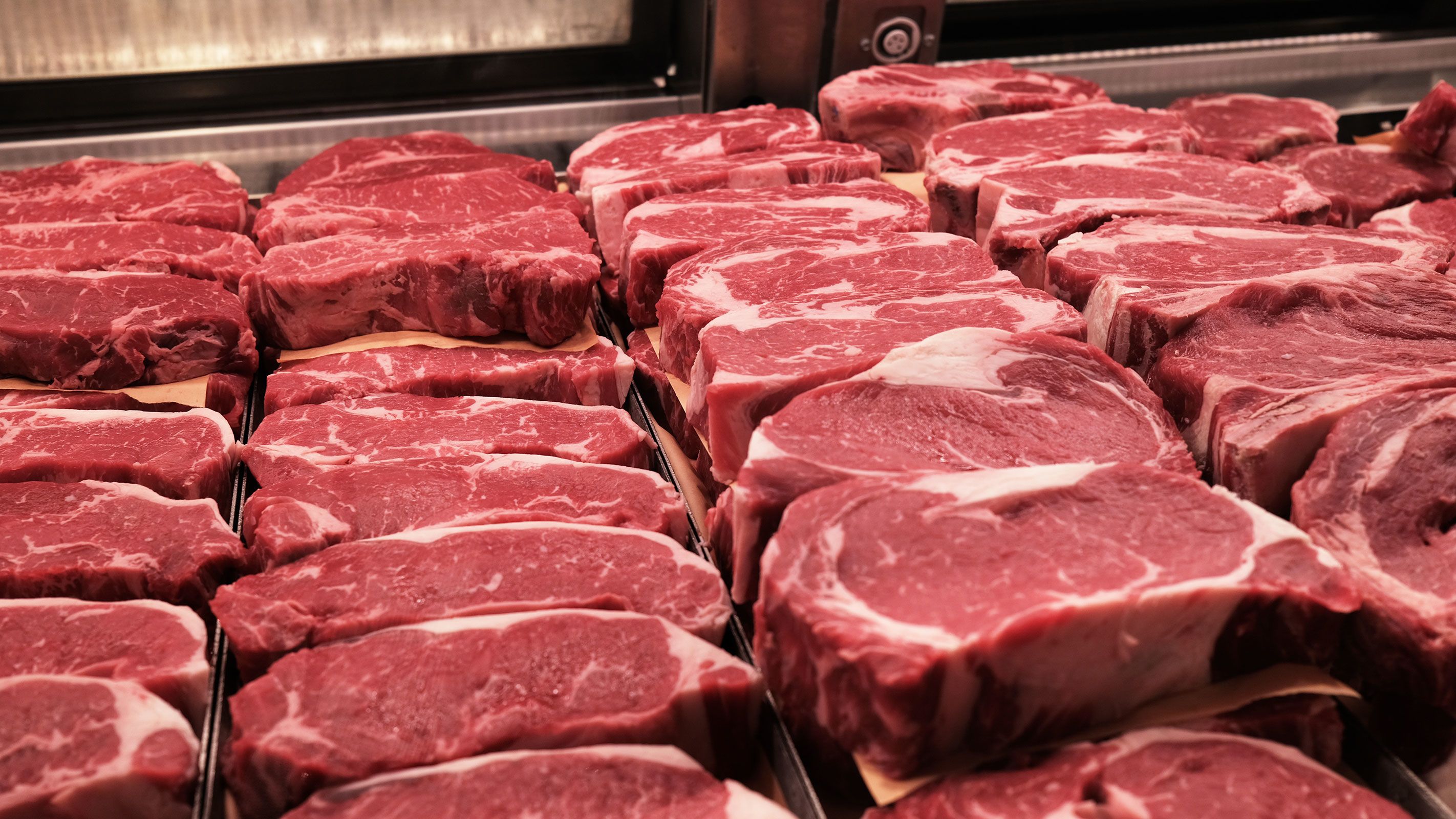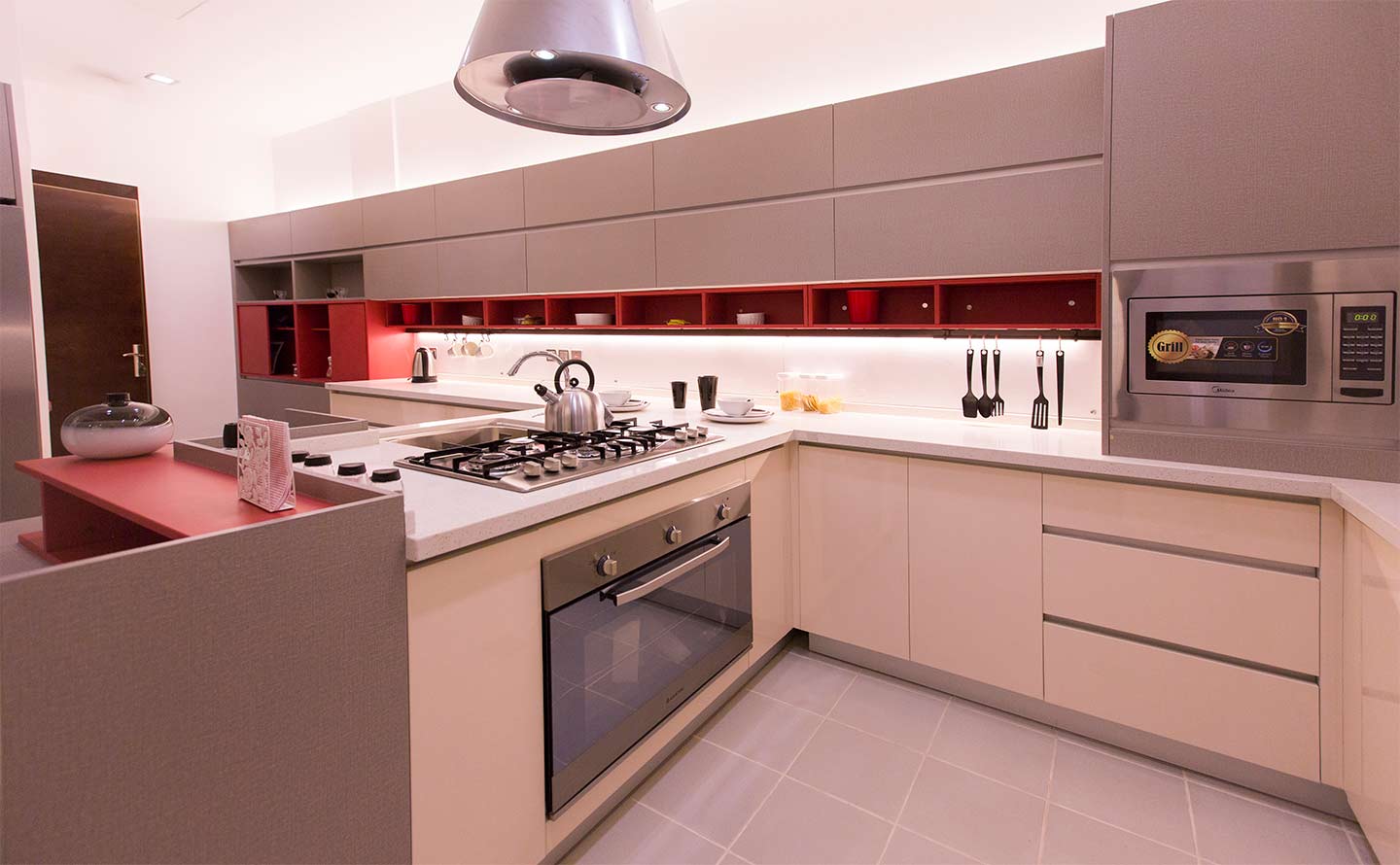Saudi Arabia Q-Commerce Market Report 2025-2033: Latest Trends & Growth Insights

Strong 8k brings an ultra-HD IPTV experience to your living room and your pocket.
Saudi Arabia Q-Commerce Market Overview
Market Size in 2024: USD 448.13 Million
Market Forecast in 2033: USD 2,348.95 Million
Market Growth Rate 2025-2033: 20.21%
According to IMARC Group's latest research publication, "Saudi Arabia Q-Commerce Market Size, Share, Trends and Forecast by Product Type, Platform, and Region, 2025-2033", The Saudi Arabia Q-commerce market size reached USD 448.13 Million in 2024. Looking forward, IMARC Group expects the market to reach USD 2,348.95 Million by 2033, exhibiting a growth rate (CAGR) of 20.21% during 2025-2033.
Growth Factors in the Saudi Arabia Q-Commerce Market
- Rapid Urbanization and Consumer Demand
Saudi Arabia’s rapid urbanization, particularly in cities like Riyadh, Jeddah, and Dammam, is a significant driver of the quick-commerce (q-commerce) market. As urban populations grow, consumers increasingly seek fast, convenient delivery of essentials like groceries, pharmaceuticals, and personal care products. For example, platforms like Nana have gained popularity in Riyadh by offering 15-minute grocery deliveries, catering to busy professionals and families. The dense urban landscape, coupled with a young, tech-savvy population, fuels demand for instant delivery services, encouraging q-commerce platforms to expand their operations and invest in efficient logistics to meet consumer expectations.
- Digital Transformation and Smartphone Penetration
The widespread adoption of smartphones and high internet penetration in Saudi Arabia are key growth factors for the q-commerce market. Vision 2030’s push for digital transformation has accelerated mobile app usage, enabling platforms like HungerStation and Jahez to offer seamless ordering experiences. For instance, HungerStation’s app allows users to order food and groceries with real-time tracking, enhancing convenience. With a tech-savvy population and increasing trust in digital payments, q-commerce platforms are capitalizing on mobile technology to provide faster services, driving market growth as consumers embrace the convenience of on-demand delivery through user-friendly interfaces.
- Vision 2030 and Economic Diversification
Vision 2030’s focus on economic diversification and fostering a digital economy is propelling the q-commerce market forward. The government’s support for e-commerce and logistics infrastructure, such as investments in last-mile delivery networks, creates a favorable environment for q-commerce platforms. For example, the Saudi Logistics Hub initiative encourages efficient supply chains, benefiting companies like Talabat, which deliver food and essentials rapidly. Additionally, the rise of tourism and hospitality under Vision 2030 increases demand for quick delivery services in tourist-heavy areas like Jeddah’s Corniche. This supportive ecosystem drives q-commerce growth by enabling scalability and operational efficiency.
Key Trends in the Saudi Arabia Q-Commerce Market
- Expansion of Dark Stores and Micro-Fulfillment Centers
The rise of dark stores and micro-fulfillment centers is a defining trend in Saudi Arabia’s q-commerce market. These small, localized warehouses enable platforms to store goods closer to customers, ensuring ultra-fast deliveries. For instance, Nana operates dark stores in Riyadh’s residential areas, allowing it to deliver groceries in under 20 minutes. This trend enhances efficiency, reduces delivery times, and improves inventory management. As competition intensifies, companies are investing in strategically located micro-fulfillment centers to serve urban consumers, aligning with the Kingdom’s push for advanced logistics infrastructure under Vision 2030.
- Integration of AI and Automation
The adoption of artificial intelligence (AI) and automation is transforming the q-commerce market by optimizing operations and enhancing customer experiences. AI-driven algorithms predict demand, optimize delivery routes, and personalize offerings. For example, Jahez uses AI to recommend products based on user preferences, improving order accuracy and customer satisfaction. Automation in warehouses, such as robotic picking systems, streamlines order processing. This trend aligns with Saudi Arabia’s digital transformation goals, enabling q-commerce platforms to scale efficiently while meeting consumer expectations for speed and reliability, positioning them as leaders in the competitive delivery landscape.
- Focus on Sustainability and Eco-Friendly Delivery
Sustainability is an emerging trend in the q-commerce market, driven by consumer awareness and Vision 2030’s environmental goals. Companies are adopting eco-friendly practices, such as electric delivery vehicles and sustainable packaging. For instance, Talabat has introduced electric scooters for deliveries in Jeddah to reduce carbon emissions. Consumers increasingly prefer brands that prioritize sustainability, prompting platforms to invest in green logistics. This trend not only supports environmental objectives but also enhances brand loyalty among eco-conscious customers, positioning q-commerce companies to align with Saudi Arabia’s vision of a sustainable, modern economy.
Download a sample PDF of this report: https://www.imarcgroup.com/saudi-arabia-q-commerce-market/requestsample
Saudi Arabia Q-Commerce Industry Segmentation:
The report has segmented the market into the following categories:
Product Type Insights:
- Grocery
- Pharmacy
- Others
Platform Insights:
- App Based
- Web Based
Regional Insights:
- Northern and Central Region
- Western Region
- Eastern Region
- Southern Region
Competitive Landscape:
The competitive landscape of the industry has also been examined along with the profiles of the key players.
Future Outlook
The Saudi Arabia q-commerce market is set for dynamic growth, fueled by urbanization, digital adoption, and Vision 2030’s focus on a diversified economy. The demand for instant delivery will continue to rise as consumers prioritize convenience, prompting platforms to expand dark store networks and leverage AI for efficiency. Sustainability initiatives, like electric delivery fleets, will gain traction, aligning with environmental goals. However, challenges such as high operational costs and intense competition may require innovative strategies, including partnerships with local retailers. With government support and a tech-savvy population, the q-commerce market will play a pivotal role in reshaping Saudi Arabia’s retail and logistics landscape, driving convenience and economic progress.
Research Methodology:
The report employs a comprehensive research methodology, combining primary and secondary data sources to validate findings. It includes market assessments, surveys, expert opinions, and data triangulation techniques to ensure accuracy and reliability.
Note: If you require specific details, data, or insights that are not currently included in the scope of this report, we are happy to accommodate your request. As part of our customization service, we will gather and provide the additional information you need, tailored to your specific requirements. Please let us know your exact needs, and we will ensure the report is updated accordingly to meet your expectations.
About Us:
IMARC Group is a global management consulting firm that helps the world’s most ambitious changemakers to create a lasting impact. The company provide a comprehensive suite of market entry and expansion services. IMARC offerings include thorough market assessment, feasibility studies, company incorporation assistance, factory setup support, regulatory approvals and licensing navigation, branding, marketing and sales strategies, competitive landscape and benchmarking analyses, pricing and cost research, and procurement research.
Contact Us:
IMARC Group
134 N 4th St. Brooklyn, NY 11249, USA
Email: [email protected]
Tel No:(D) +91 120 433 0800
United States: +1-631-791-1145
Note: IndiBlogHub features both user-submitted and editorial content. We do not verify third-party contributions. Read our Disclaimer and Privacy Policyfor details.







